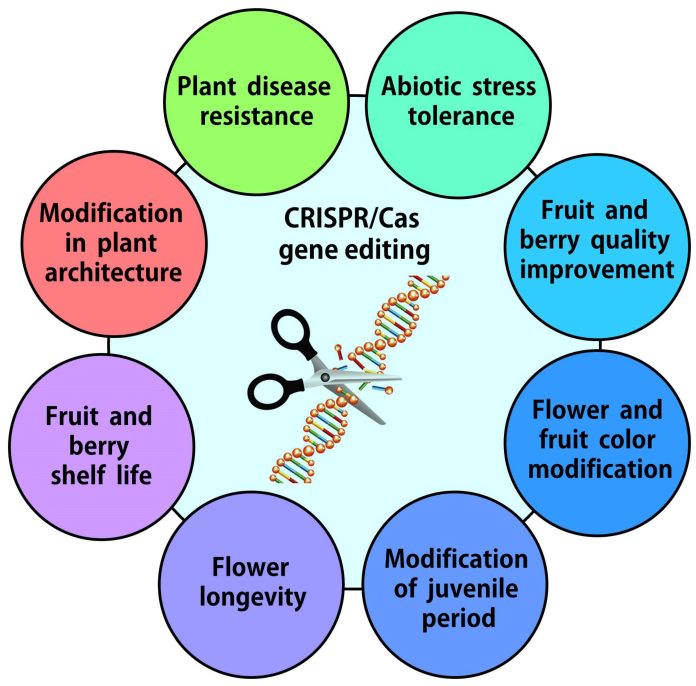Prof. Olalekan Akinbo, Scientist at African Union Development Agency (AUDA-NEPAD), says application of genome editing technology in crop improvement is cost effective and easy to use.
Akinbo told the News Agency of Nigeria (NAN) on Friday that genome editing was also capable of speeding up the development of elite crop varieties.
NAN reports that Akinbo is the Technical Lead, Genome Editing Initiative of the AUDA-NEPAD Centre of Excellence in Science, Technology and Innovation.
He explained that genome editing was another aspect of biotechnology currently experiencing growth.
“It enables scientists to manipulate the genome, which is the entire genetic information found in a cell of various living organisms.
“It is based on the use of engineered Sequence Specific Nucleases (SSNs) to induce DNA double-stranded breaks at precise locus)loci in the genome, ” Akinbo said.
He noted that a major feature of the technology was the ability to alter a plant’s genome without incorporating foreign DNA.
Reacting to the important techniques of biotechnology for food security, he said genetic engineering was one of such advanced technologies being used to attain food sufficiency in developed countries of the world.
“It involves exploring knowledge of the functional genomics of species and organisms, by incorporating specific DNA sequences coding for desirable traits into crops of interest.
” This involves using tools of gene transfer such as Agrobacterium-mediated transformation , electroporation, particle bombardment and calcium phosphate -mediated gene transformation, ” Akinbo said.
According to him, Nigeria must embrace novel technology in agriculture and overhaul the food system completely in order to ensure food security.
“Currently, Nigeria is a food deficit nation, spending up to 10 billion of dollars annually in food importation to feed its ever growing population.”
He said although the country led globally in the production of crops like cassava, yam and others due to the annual increase in land area under cultivation
He clarified that it was not as a result of improved productivity in terms of yield.
He added that post-harvest yielded loss, which was up to 60 per cent in some crops, occured at various stages of food system, thereby making food unaffordable and unavailable to many.
“In 2019, Africa spent 43 billion dollars on food importation, which is forecast to hit 90 billion dollars by 2030.
“Decline in per capita food production on the continent is partly due to population explosion which is not matched up with adequate food production.
“This has resulted in widening the gap between food production and the associated consumption, according to Africa Common Position on Food Systems Food Security,” Akinbo said.(NAN)


